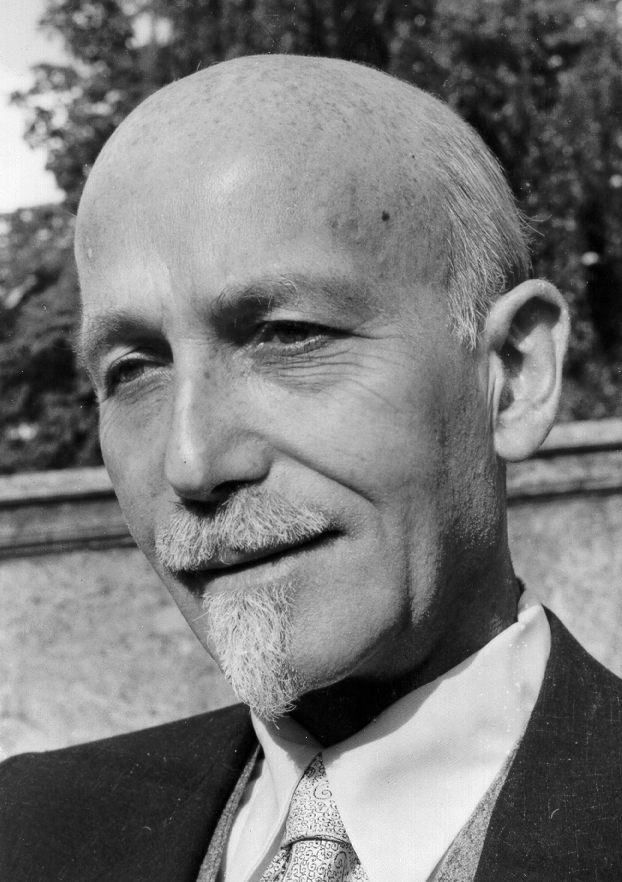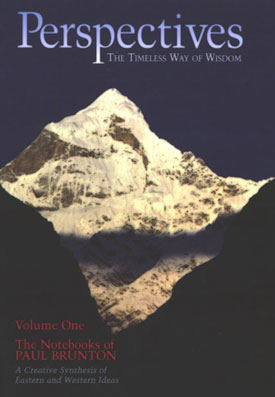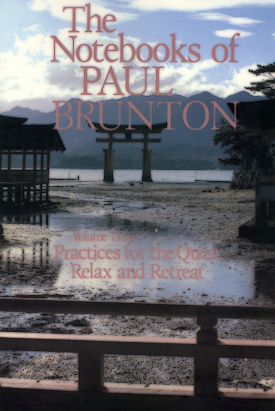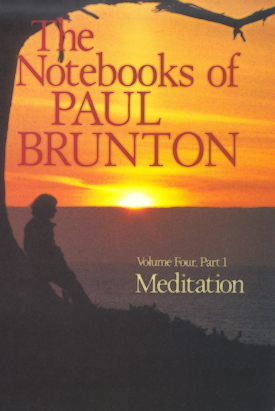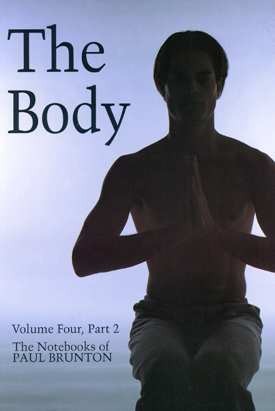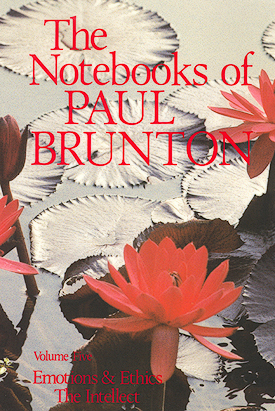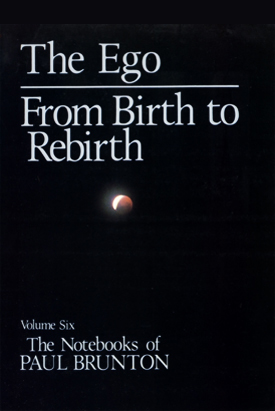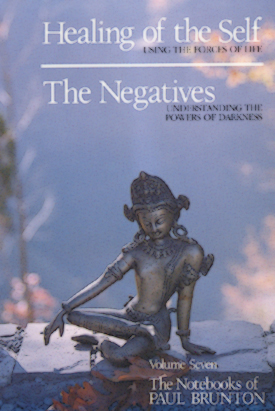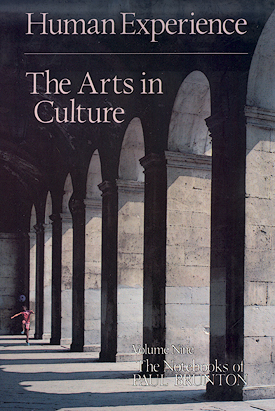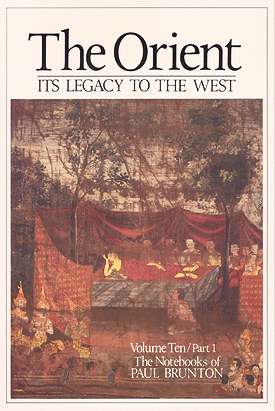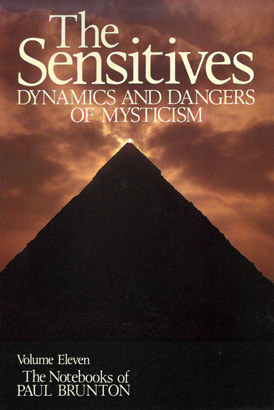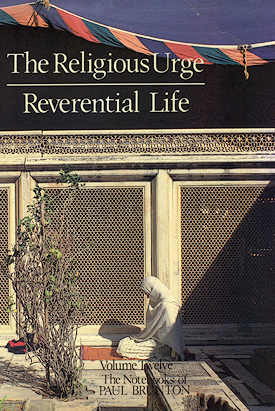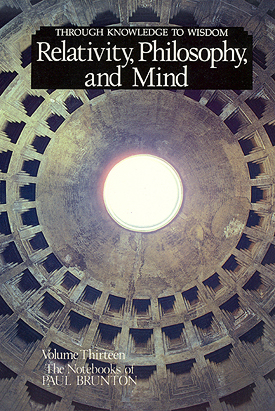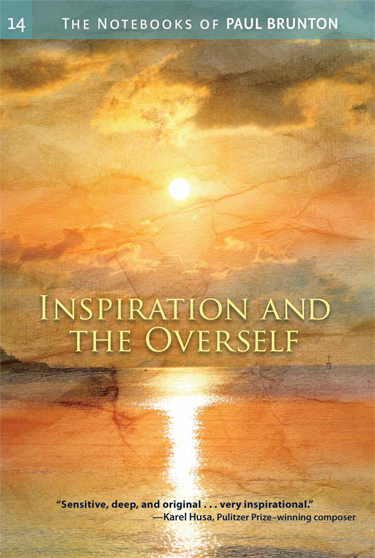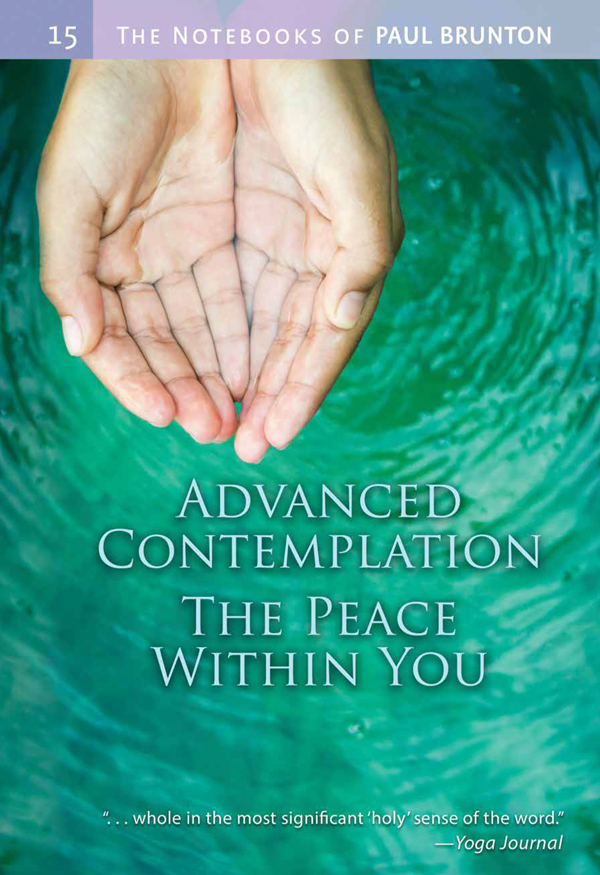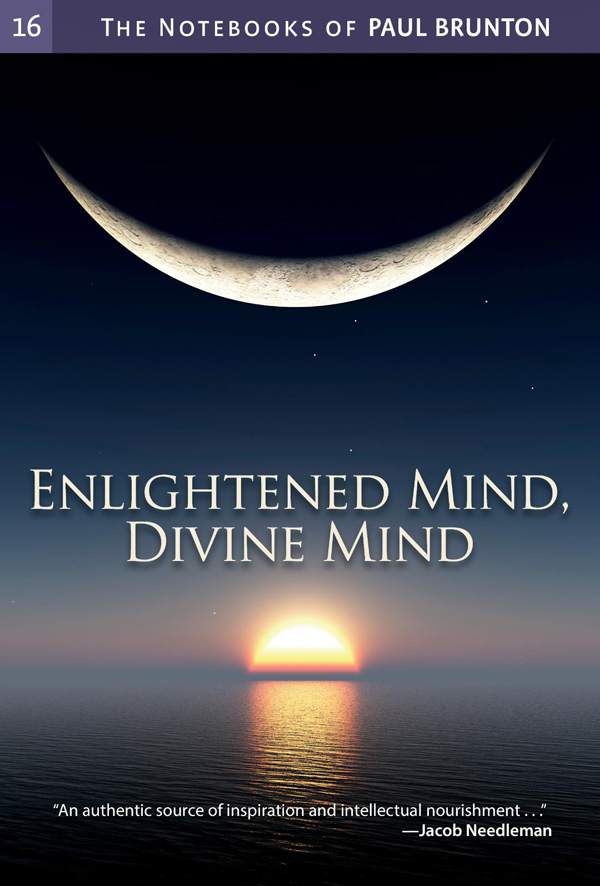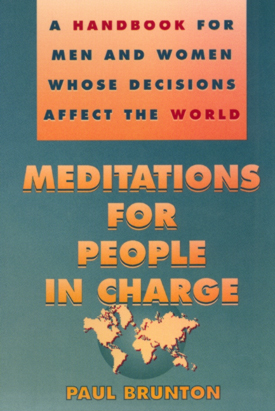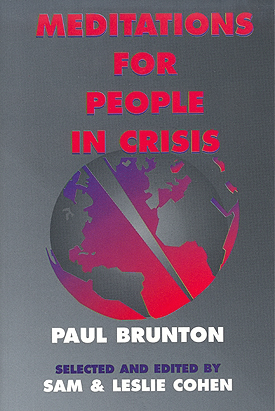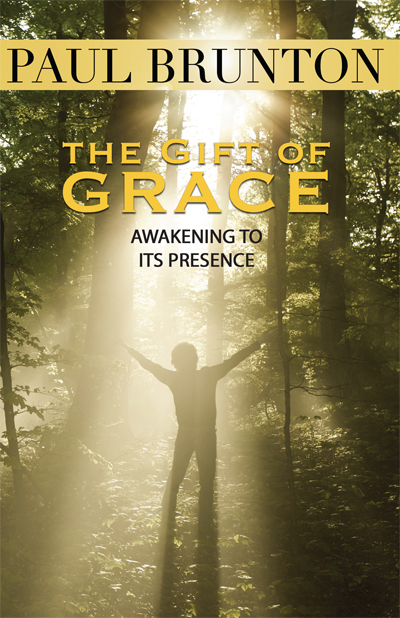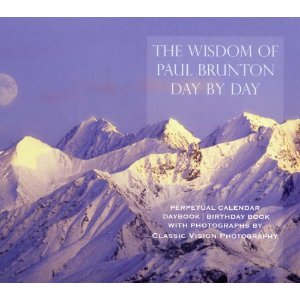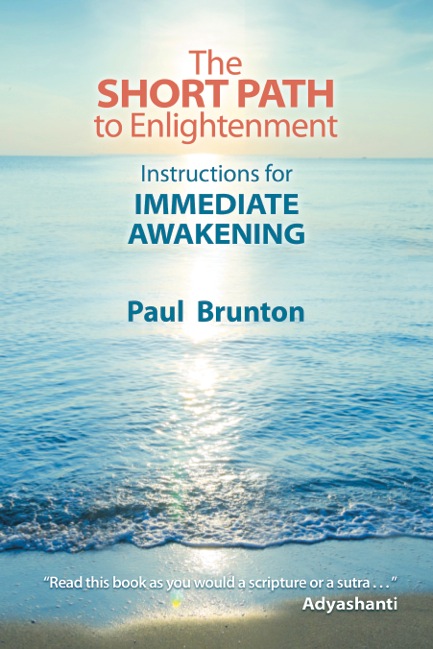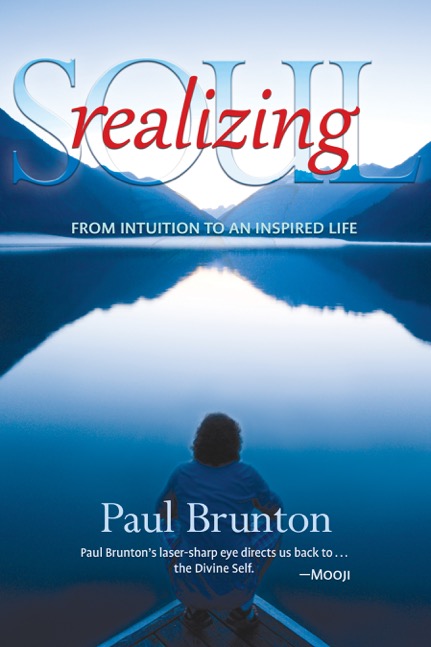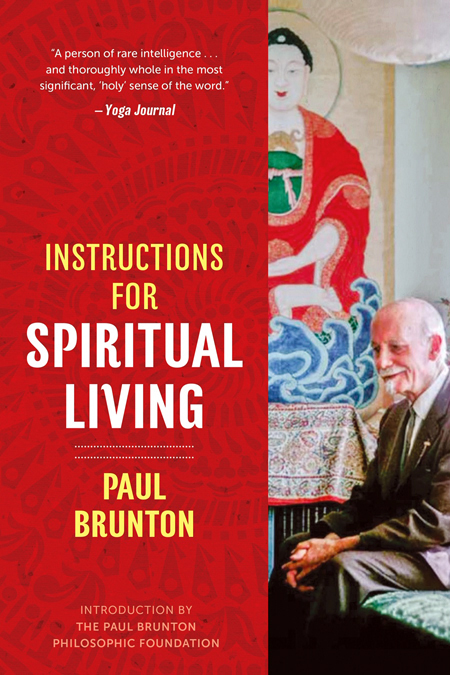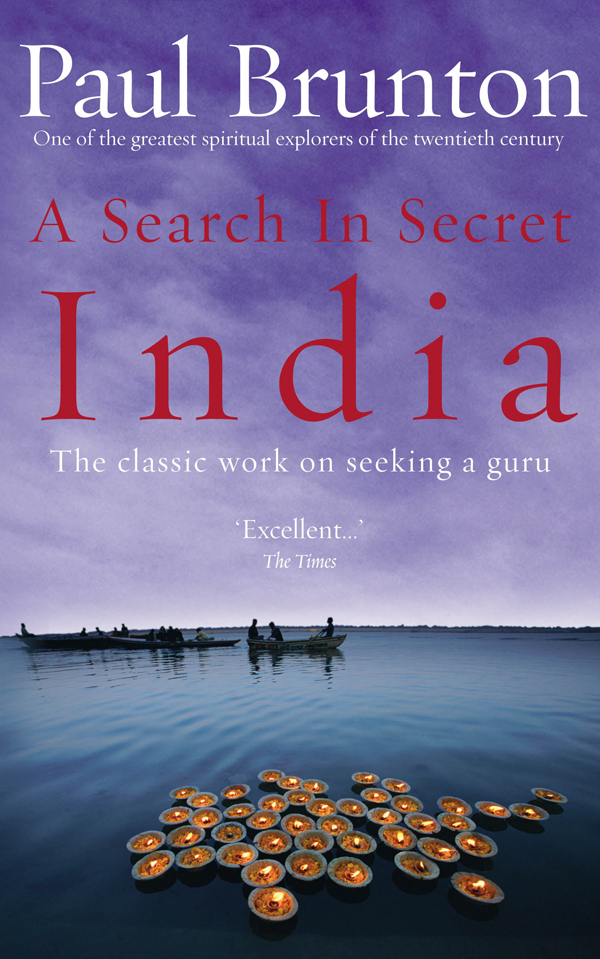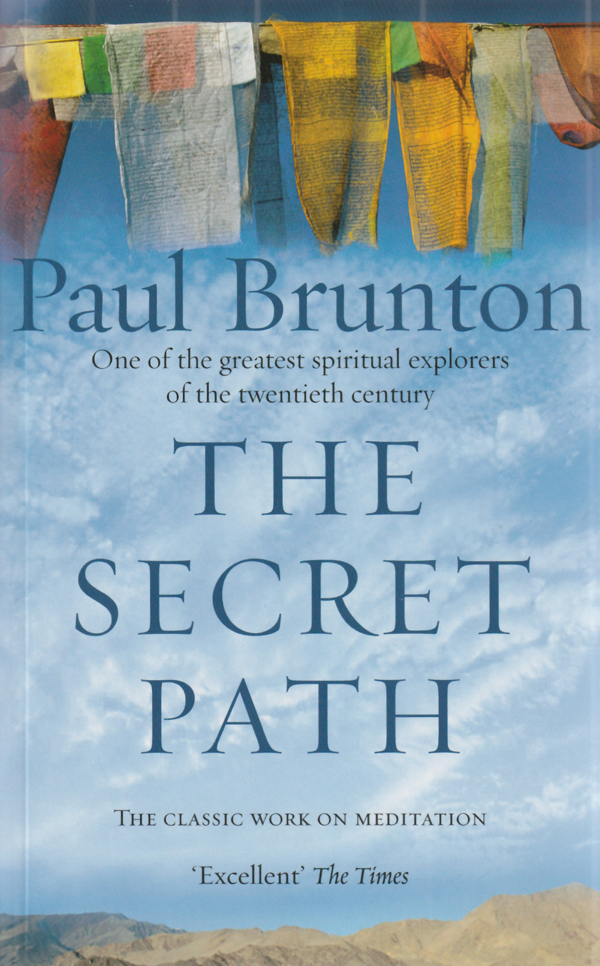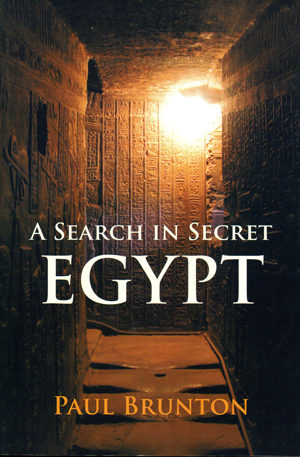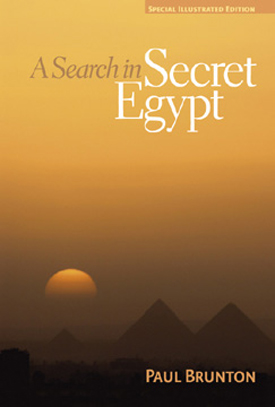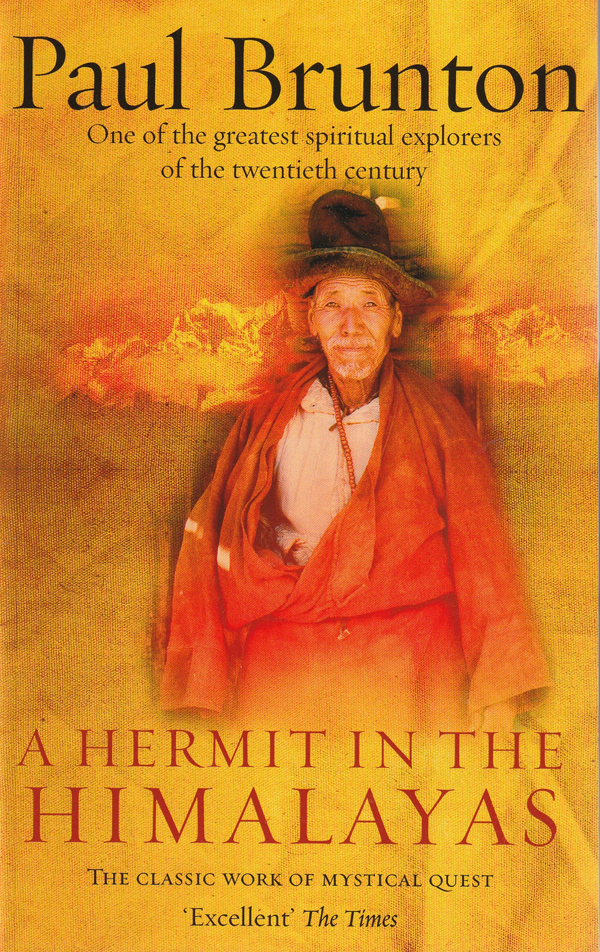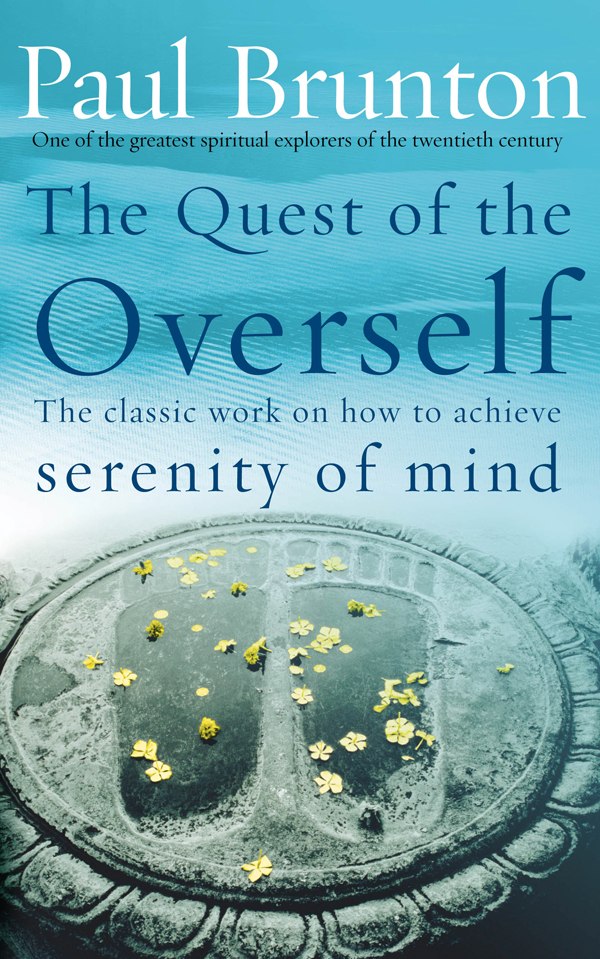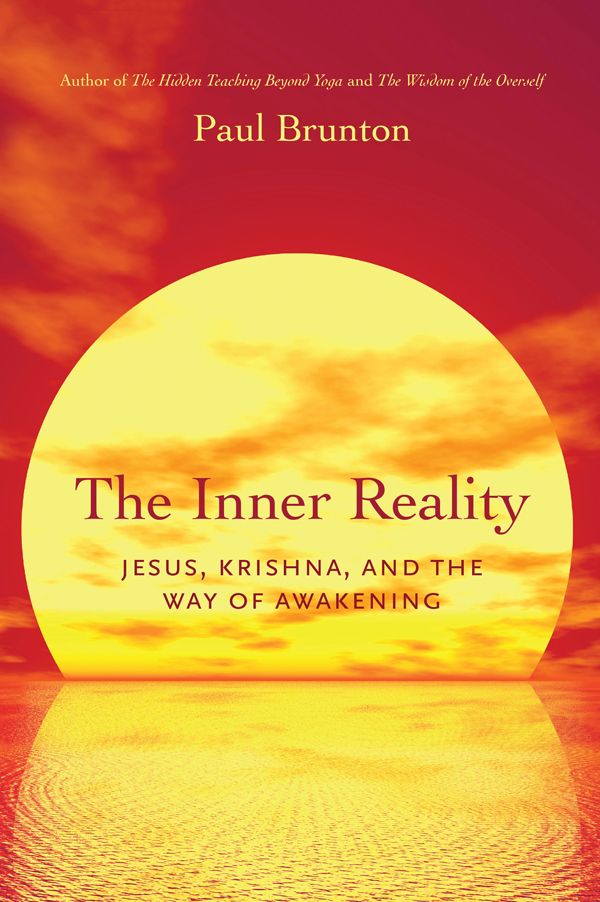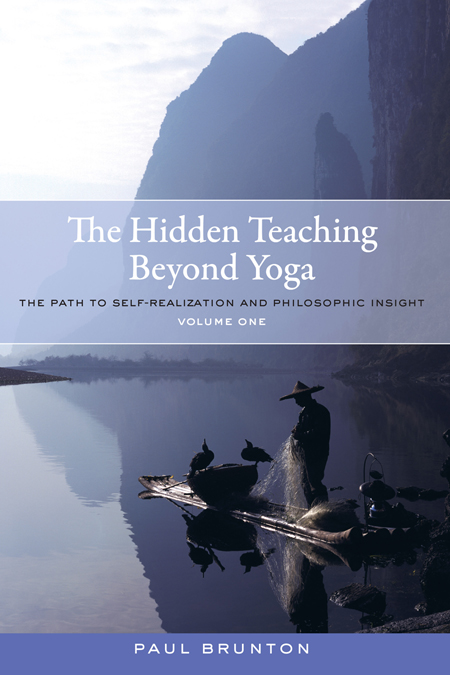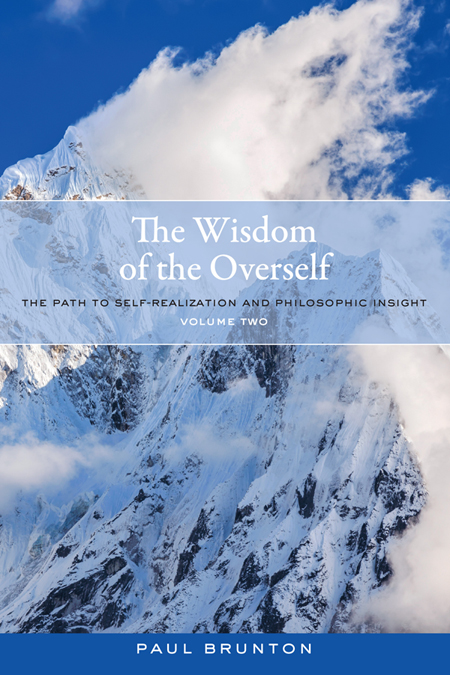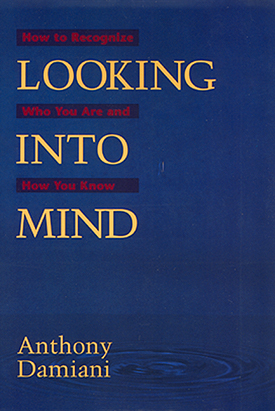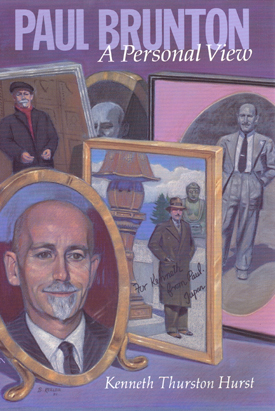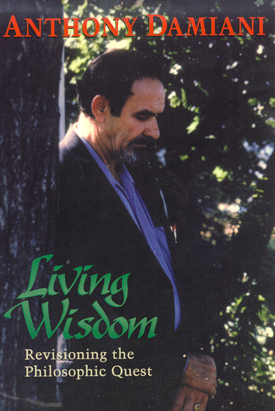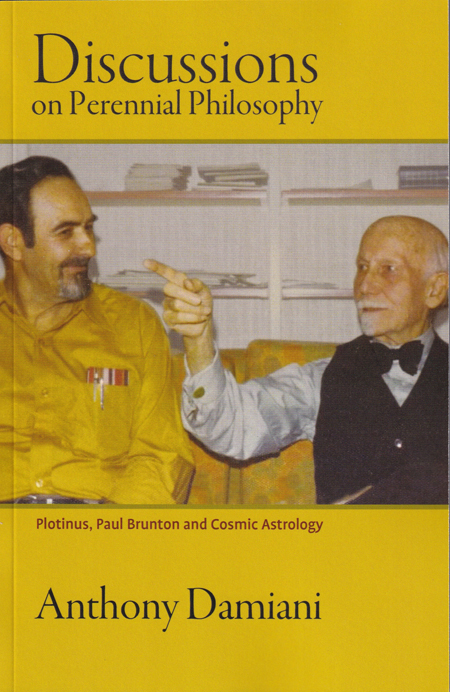The Notebooks of Paul Brunton volume 2
The Quest By Paul Brunton
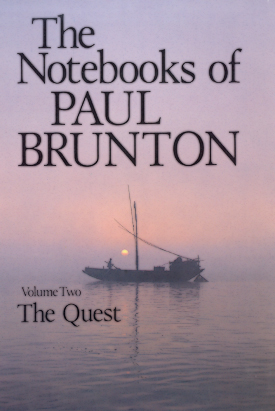
Retail/cover price: $22.95
Our price : $18.36
(You save $4.59!)
About this book:
The Notebooks of Paul Brunton volume 2
The Quest
by Paul Brunton
"Because something deep down in the sub-conscious knows that the ego is destructible . . . a longing arises for that which is indestructible. . . . This is the beginning of the Quest." —P.B.
Subjects: Philosophy, Spirituality, Independent Path
5.75 x 8.5, softcover
(hardcover available)
384 pages
ISBN 10: 0-943914-14-0
ISBN 13: 978-0-943914-14-5
Book Details
This comprehensive overview of the many and varied issues involved in starting and completing the spiritual quest abounds with candid, seasoned, and useful advice about responding to the inner call. It also features an important and timely section on teacher-student relationships.
Category One: THE QUEST
INTRODUCTION
1. WHAT THE QUEST IS
General description
Its importance and practicality
2. ITS CHOICE
General notes
Qualifications
Why people come
Why many people don't come
Postponing the choice
In what sense is there a choice?
Implications of the choice
3. INDEPENDENT PATH
General description
Take truth where you find it
Intelligent nonconformity
Pros & cons of independence
Requirements
Is monastic discipline needed?
Independence and teachers
Loneliness
4. ORGANIZED GROUPS
Benefits for beginners
Problems
Relation to founder
5. SELF-DEVELOPMENT
General description
What exactly is the goal?
Unique person: unique path
Knowing and working within one's limitations
Stages of development
Only whole person finds whole truth
Attainments
Dangers
6. STUDENT-TEACHER
General notes
The need for a teacher
Books as teachers
Issues in seeking a teacher
Qualifications, duties of a teacher
Master-disciple relationship
Qualifications, duties of a disciple
Cultivating the inner link
Master as symbol
Graduation
“. . . a veritable treasure-trove of philosophic-spiritual wisdom.” —Elisabeth Kubler-Ross
“. . . sensible and compelling. His work can stand beside that of such East-West bridges as Merton, Huxley, Suzuki, Watts, and Radhakrishnan. It should appeal to anyone concerned personally and academically with issues of spirituality.” —Choice
“Vigorous, clear-minded and independent . . . a synthesis of Eastern mysticism and Western rationality. . . A rich volume.” —Library Journal
“. . . a great gift to us Westerners who are seeking the spiritual.” —Charles T. Tart
“A person of rare intelligence. . . thoroughly alive, and whole in the most significant, 'holy' sense of the word.” —Yoga Journal
For more reviews of the Notebooks series, click here
Widely recognized as one of the most influential pioneers of East-West culture in this century, Paul Brunton kept detailed personal notebooks concerning the deepening and development of one's inner life in modern circumstances. Throughout his successful literary career, these notebooks were the major resource from which he developed material for publication. He authored eleven well-received books, from A Search in Secret India in 1934 to The Spiritual Crisis of Man in 1952 [newly available as an ebook Humanity's Spiritual Crisis].
Paul Brunton is esteemed not only for the expertise and simple prose with which he introduced formerly esoteric ideas to the general public of the West, but also for his uncommon personal warmth, gentility, and graciousness. His was a mind in which highly developed faculties of critical observation joined an innate reverence for the sacred to explore fundamental issues of the human heart: knowledge of its present state, of its higher potentials, of the nature of the universe in which it appears, and of its proper relation to that universe.
The success of his books brought P.B., as Paul Brunton came to be addressed, numerous offers to take on the role of personal guru (teacher) for thousands of readers, to found ashrams and edit journals in which he would be cast as a central figure in organized movements intending to midwife the "spiritual rebirth" of the West. But such was not his own idea, and he graciously but firmly maintained a personal independence while warmly supporting many of those individuals who did take on such roles. He felt that his best service was to write for people who are not essentially "joiners" but who sincerely aspire for deeper knowledge and experience of the inviolable spirit within their own hearts. In light of that disposition, he preferred to serve as simply one human being exploring ever more profound truths with increasing depth and concentration. He presented himself formally as "a researcher, with some experience in these matters . . . and that is all." His leadership consisted primarily in personal example and in sharing ideas that had proven useful to him — rather than through directing organized groups or making concessions to the conventional teacher-student posture.
From 1952 until his death in 1981, P.B. chose to reserve his daily writings for posthumous publication. Perspectives, the first volume in this series titled The Notebooks of Paul Brunton, was published in July of 1984 as an introductory survey of the twenty-eight major topics addressed in the notebooks. This volume, The Quest, begins an in-depth presentation of the individual topics as roughly outlined by P.B. himself to the present editorial staff during 1980 and 1981. It deals extensively and exclusively with category number one of P.B.'s twenty-eightfold general schema.
As was the case with Perspectives, selection and placement of the material has been done by the editorial staff and not by P.B. himself. The editors acknowledge that much of the placement is arbitrary. Only the broad general divisions indicated by capital letters as titles of "chapters" two through six in the table of contents were given by P.B. for this category. Beyond the further grouping of related themes into secondary and sometimes tertiary clusters, little attempt has been made to sequence the material. This category and the sections that follow are meant as rich resources drawn from notebooks rather than as a finished, polished work.
The table of contents and the index together provide an abridged outline of the working model established by the editors for selecting and generally structuring the material. A study guide/index volume giving the complete working model will be published as the last volume in this "Ideas" series.
A few additional remarks are in order concerning editorial policy.
Like most writers of his generation. P.B. employed the literary convention of using masculine gender (for example, he, his, man, mankind) to refer to men and women alike. It is clear from his life and teachings that he never viewed gender as a determinant of superiority. It is also not always clear if P.B. may be using "he" or "his" as third-person references to himself or to a specific individual. Though P.B. did regularly update his writing style to reflect current usage, he saw none of the experiments with gender pronouns in use prior to 1981 as a sufficiently stable and suitable alternative for use in philosophic writings meant to withstand the test of time through many generations. For all these reasons, we have not here taken the liberty of substantially modifying his writings in this regard.
It also should be noted that P.B. had a working knowledge of several languages. Translations in The Notebooks that are at variance with other published versions from non-English sources may be credited either to P.B. or or to his collaboration with correspondents throughout the world.
Finally, readers are encouraged to look more closely into what may on the surface appear to be unnecessary repetition of certain themes in some sections of this volume. Closer examination of the individual paras will bring to light important nuances of P.B.'s thinking, nuances that would have been omitted if all repetition were removed.
Throughout this project, we applied ourselves to two goals: (1) bringing together all P.B.'s principal ideas in each category, and (2) eliminating redundancy where significant nuances are not sacrificed. Our aim was to provide a comprehensive and comprehendible text of P.B.'s "seed thoughts," one that is neither too structured nor too amorphous to deliver their essential spirit and relatedness.
In the interest of the first goal, each category repeats some paras from Perspectives, the survey volume of the series. Such paras are indicated by a (P) at their end.
In the interest of the second goal, we have not published paras we consider repetitive of and less well written than the ones selected. While the published Notebooks series does not contain every para P.B. wrote in his last thirty years, we have erred on the side of including too much rather than too little. Having done so, we are certain The Notebooks thoroughly represents his valuable insights.
PREFATORY
A letter from P.B. to P.B.:
(1) It is not the tyranny of the ego which is to be removed most of all — although that is a necessary part of the Great Work — nor is it that the ego must be uprooted and killed forever — although its old self must surrender to the new person it has to become. No — let it live and attend to its daily work but only as a purified being, an ennobled character or quietened mind, an enlightened man — in short, a new ego representing what is best in the human creature. He will still be an "I" but one that is in harmony with the Overself — a descriptive name that ought to be kept and not discarded. So do not in your writings attack the ego as so many do, but lift it up to the highest possibility.
(2) The teachers increase daily and ask others to follow them. The teachings multiply and the books about them too. They are not your concern. Let them do their very much needed work. But you are to enter a new and different rhythm and tell such as will listen that they need not be forlorn, lost, or without hope because they find none to appeal to their heart or mind. They are asked only to follow the God within themselves, for "The Kingdom of Heaven is within you." P.B. — give this message while giving all proper respect and honour to the teachers of today and yesterday. Those who feel alone in this matter or who can only walk outside the groups on an independent path should be reminded that there is a God within them who can guide and help them if they turn to him.
From chapter 1: WHAT THE QUEST IS
General description
1 The Quest not only begins in the heart but also ends there too.
2
It is an endeavour to lift to a higher plane, and expand to a larger measure, the whole of his identity. It brings in the most important part of himself — being, essence, Consciousness.
3
"Man Know Thyself!" There is a whole philosophy distilled into this single and simple statement.
4
Between the ordinary man who takes himself as he is, and the philosopher who does exactly the same, there stands the Quester. In the first case, outlook is narrow, being limited by attending to the inescapable necessities and demands of day-to-day living. In the other case, peace of mind has been established, the thirst for knowledge fulfilled, the discipline of self realized. In between these two, the Quester is not satisfied with himself, has a strong wish to become a better and more enlightened man. He tries to exercise his will in the struggle for realization of his ideal.
5
It lifts human consciousness vertically and enlarges human experience spiritually.
6
If the Infinite Being is trying to express its own nature within the limitations of this earth — and therefore trying to express itself through us, too — it is our highest duty to search for and cultivate our diviner attributes. Only in this way do we really fulfil ourselves. This search and this cultivation constitute the Quest.
7
It offers a conception of life which originates on a higher level.
From chapter 2: ITS CHOICE
General notes (excerpts)
2
Three happenings must show themselves: to be given direction, to feel an impulsion towards it, and to practise purification as a necessary requisite for the journey. Two warnings are needed here: fall not into the extreme of unbalance, and depend not on what is outside. One reminder: seek and submit to grace. It may be imageless or found anywhere anytime and in any form — a work of art, a piece of music, a living tree, or a human being — for in the end it must come from your own higher individuality and in your own loneliness.
3
Before embarking on this teaching, he should ask himself: "What attracts me most in this teaching? What do I hope to get out of it? Am I seeking religious satisfaction or metaphysical truth or moral power or inner peace or psychic faculties? Will I be satisfied with a theoretical understanding or would I go so far as to put it into practice? Am I willing to set aside a half hour daily for the exercise in meditation? How far do I wish to travel in the Quest of the Overself?"
4
The beginnings of this higher life are always mysterious, always unpredictable, sometimes intellectually quiet and sometimes emotionally excited.
5
When first he sets the logs of his raft afloat upon these strange waters whose ending can be only "somewhere in infinity" as the geometricians say, there are no lights to show his frail vessel the way of travel, no suns or stars to point a path for it. But he knows then that his head is bowed in homage to a higher power. Later he will know also how utterly right was the intuition which earlier drove him forth.
6
We walk the Quest uncertainly, human nature being what it is, human weakness following us so obtrusively as it does.
7
The decision to embark on this quest — so new, uncommon, and untried to the average Westerner — becomes especially hard to the man seeking alone, with no companion or relative to fortify his resolution.
8
This urge to discover an intangible reality seems an irrational one to the materialistic mentality. But, on the contrary, it is the most completely logical, the most sensible of all the urges that have ever driven a man.
From chapter 3: INDEPENDENT PATH
General description
1
What am I? is such an ancient and perennial question only because it has to be answered by each individual for himself. If he finds the true answer, he will find also that he cannot really transfer it to another person but only its idea, its mental shadow. That too may be valuable to others, but it is not the same.
2
Surely the human race has by this time, by this late century in history found the truth? Why, then, does the man who wants it have to make his own personal search all over again? It is because he must know it for himself within himself.
3
It was Ramana Maharshi of Arunachala who said, "You yourself are your own guru. Be that."
4
He who seeks the truth about these matters will discover that it is contrary to current opinion, and therefore he will have to discover it by himself and for himself.
5
He should verify the truth not by reference to book or bible but by reference to his own private experience.
6
There is no room in this school for those who are ready to dispose of life's problems with secondhand judgement. The need of individual thinking is vital here.
7
Humanity will not be saved in groups or by organizations. It will be saved individual by individual.
8
The Quest begins with, and ends in, himself.
9
Being true to oneself brings happiness. Being indifferent to the criticisms of those who misunderstand brings freedom from anxiety on their account. Walking the streets in a spirit of independence, enables us to walk as a millionaire! Let others sacrifice themselves to snobbery, if they will; let us be free. Only when the feet rest can we bring the mind to rest — unless we are Attained Ones!
From chapter 6: STUDENT-TEACHER
General notes
1
The few who have a broad experience of life, whose reason is sufficiently alive to judge both fruits and roots correctly and whose intuition is sufficiently active to recognize nobility when meeting it, who want the whole truth and nothing less, will find a friend (for he will not wish to be anything more) who will decline to permit others to hold a fanciful vision of an earthly perfection which is non-existent; who will be humble, sane, and balanced above all things, and yet prove with time — if they themselves prove loyal — to be also a sure and benevolent guide in this dark forest where so many wander bewildered, deceived, or self-deceived. Excessive unreflective saint-worship raises exaggerated and even false hopes. It has historically often ended with exploitation of the worshipper. But even where it does not, it is still incompatible with healthy self-development; an affectionate respect is wiser and safer. Let us not ask a teacher to be a god, because thereby we are liable to deceive and endanger ourselves, but let us ask him to be competent and illumined, truthful and helpful and compassionate.
2
Not by our own exertions alone, and not by the gift or grace of an external being alone, can we be brought to final realization, but by both.
3
Those who can let themselves be uplifted by some inspired or enlightened person should understand that he is capable of lifting them to the point of touching their best self, the divinity within them. Some may even gain a glimpse of it, a memorable unforgettable experience. But will they let it happen?
4
We are not left to find out for ourselves what the truth is. Now and then messengers appear among us, each bearing his own personal communication about the existence of a higher power and the need of a higher life.
5
We may help the Overself in drawing us to the goal by surrendering to the guidance of a competent spiritual adviser or we may obstruct it by clinging to the ego's. But an incompetent adviser will also obstruct it, and in fact become a channel for the ego's truth-obscuring tactics.
6
The difficulty of the task of self-improvement is not to be underrated and it is because of this as well as for other reasons that seekers since ancient times have been advised to obtain the help of a guru. From him they can get inspiration, guidance, and a certain telepathically transferred strengthening power which is called Grace.
It is not necessary to be living always near a guru in a monastery as so many seem to think. What is really necessary is to meet him on this physical plane once only, even if it be just for five minutes. After that his help can be received inwardly and mentally by telepathy without any further physical meeting. This is because the real guru is not the body, but his inner being, the Mind behind the body, and it is that inner being with which the seeker must try to come into relation. Such a relation he builds up himself by his own mental attitude, by his faith devotion and obedience to the way that is shown.
In his own words:
“Writing, which is an exercise of the intellect to some, is an act of worship to me. I rise from my desk in the same mood as that in which I leave an hour of prayer in an old cathedral, or of meditation in a little wood . . .” —from Perspectives, volume 1 in The Notebooks of Paul Brunton, p. 143
“P.B. as a private person does not count. There are hundreds of millions of such persons anyway. What is one man and his quest? P.B.’s personal experiences and views are not of any particular importance or special consequence. What happens to the individual man named P.B. is a matter of no account to anyone except himself. But what happens to the hundreds of thousands of spiritual seekers today who are following the same path that he pioneered is a serious matter and calls for prolonged consideration. Surely the hundreds of thousands of Western seekers who stand behind him and whom indeed, in one sense, he represents, do count. P.B. as a symbol of the scattered group of Western truth-seekers who, by following his writings so increasingly and so eagerly, virtually follow him also, does count. He personifies their aspirations, their repulsion from materialism and attraction toward mysticism, their interest in Oriental wisdom and their shepherdless state. As a symbol of this Western movement of thought, he is vastly greater than himself. In his mind and person the historic need for a new grasp of the contemporary spiritual problem found a plain-speaking voice . . .” —from Perspectives, volume 1 in The Notebooks of Paul Brunton, p. 145
Learn more about Paul Brunton through articles at the Paul Brunton Philosophic Foundation web site
Ebook
Electronic versions of this book are available from all major (Amazon Kindle, Barnes & Noble, Apple, Kobo, etc.) and most smaller ebook vendors. Please don't try to order ebooks directly from us, as we are not yet able to deliver anything to you in a preferred electronic format.
Hardcover
We have a limited number of copies of this volume in hardcover. Click here.
To see all our Paul Brunton titles, scroll down to The Complete Paul Brunton Opus below.
To see and/or order individual volumes in The Notebooks of Paul Brunton, hover your mouse over the specific cover in the Notebooks section of Complete Paul Brunton Opus below, then click on Details in the box that appears within it.
Click here to see or order the complete set of The Notebooks of Paul Brunton.
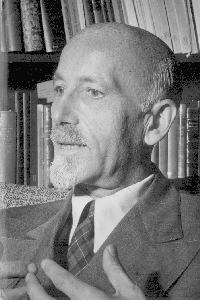
Paul Brunton helps us hear the melody behind the medley of today's "spiritual marketplace." His late writings raise the bar for what we can expect of spiritual teachings and teachers, and what we can do for ourselves. Born in London in 1898, he soon became a leading pioneer of much of what we now take for granted. He traveled widely throughout the world (long before it was fashionable) to meet living masters of various traditions with whom he then lived and studied. His eleven early books from 1934–1952 shared much of what he learned, and helped set the stage for dramatic east-west exchanges of the late 20th century. Paul Brunton left more than 10,000 pages of enormously helpful new work in notebooks he reserved for posthumous publication, much of which is now available as The Notebooks of Paul Brunton. See "The Complete Paul Brunton Opus" in blue below to see his many works available on this site. You can also search on Paul Brunton in the search bar to browse the selections, or click on a link below for specific connections.
Click here for an article about Paul Brunton.
Click here for The Notebooks of Paul Brunton.
To access small theme-based books compiled from Paul Brunton's writings, scroll down to Derived from the Notebooks below.
To access Paul Brunton's early writings, published from 1934–1952, scroll down to Paul Brunton's Early Works below.
To access commentaries on Paul Brunton and his work by his leading student, Anthony Damiani, as well as other writings about Paul Brunton and/or his work, scroll down to Commentaries and Reflections on Paul Brunton and His Work below.
Book Details
This comprehensive overview of the many and varied issues involved in starting and completing the spiritual quest abounds with candid, seasoned, and useful advice about responding to the inner call. It also features an important and timely section on teacher-student relationships.
Category One: THE QUEST
INTRODUCTION
1. WHAT THE QUEST IS
General description
Its importance and practicality
2. ITS CHOICE
General notes
Qualifications
Why people come
Why many people don't come
Postponing the choice
In what sense is there a choice?
Implications of the choice
3. INDEPENDENT PATH
General description
Take truth where you find it
Intelligent nonconformity
Pros & cons of independence
Requirements
Is monastic discipline needed?
Independence and teachers
Loneliness
4. ORGANIZED GROUPS
Benefits for beginners
Problems
Relation to founder
5. SELF-DEVELOPMENT
General description
What exactly is the goal?
Unique person: unique path
Knowing and working within one's limitations
Stages of development
Only whole person finds whole truth
Attainments
Dangers
6. STUDENT-TEACHER
General notes
The need for a teacher
Books as teachers
Issues in seeking a teacher
Qualifications, duties of a teacher
Master-disciple relationship
Qualifications, duties of a disciple
Cultivating the inner link
Master as symbol
Graduation
“. . . a veritable treasure-trove of philosophic-spiritual wisdom.” —Elisabeth Kubler-Ross
“. . . sensible and compelling. His work can stand beside that of such East-West bridges as Merton, Huxley, Suzuki, Watts, and Radhakrishnan. It should appeal to anyone concerned personally and academically with issues of spirituality.” —Choice
“Vigorous, clear-minded and independent . . . a synthesis of Eastern mysticism and Western rationality. . . A rich volume.” —Library Journal
“. . . a great gift to us Westerners who are seeking the spiritual.” —Charles T. Tart
“A person of rare intelligence. . . thoroughly alive, and whole in the most significant, 'holy' sense of the word.” —Yoga Journal
For more reviews of the Notebooks series, click here
Widely recognized as one of the most influential pioneers of East-West culture in this century, Paul Brunton kept detailed personal notebooks concerning the deepening and development of one's inner life in modern circumstances. Throughout his successful literary career, these notebooks were the major resource from which he developed material for publication. He authored eleven well-received books, from A Search in Secret India in 1934 to The Spiritual Crisis of Man in 1952 [newly available as an ebook Humanity's Spiritual Crisis].
Paul Brunton is esteemed not only for the expertise and simple prose with which he introduced formerly esoteric ideas to the general public of the West, but also for his uncommon personal warmth, gentility, and graciousness. His was a mind in which highly developed faculties of critical observation joined an innate reverence for the sacred to explore fundamental issues of the human heart: knowledge of its present state, of its higher potentials, of the nature of the universe in which it appears, and of its proper relation to that universe.
The success of his books brought P.B., as Paul Brunton came to be addressed, numerous offers to take on the role of personal guru (teacher) for thousands of readers, to found ashrams and edit journals in which he would be cast as a central figure in organized movements intending to midwife the "spiritual rebirth" of the West. But such was not his own idea, and he graciously but firmly maintained a personal independence while warmly supporting many of those individuals who did take on such roles. He felt that his best service was to write for people who are not essentially "joiners" but who sincerely aspire for deeper knowledge and experience of the inviolable spirit within their own hearts. In light of that disposition, he preferred to serve as simply one human being exploring ever more profound truths with increasing depth and concentration. He presented himself formally as "a researcher, with some experience in these matters . . . and that is all." His leadership consisted primarily in personal example and in sharing ideas that had proven useful to him — rather than through directing organized groups or making concessions to the conventional teacher-student posture.
From 1952 until his death in 1981, P.B. chose to reserve his daily writings for posthumous publication. Perspectives, the first volume in this series titled The Notebooks of Paul Brunton, was published in July of 1984 as an introductory survey of the twenty-eight major topics addressed in the notebooks. This volume, The Quest, begins an in-depth presentation of the individual topics as roughly outlined by P.B. himself to the present editorial staff during 1980 and 1981. It deals extensively and exclusively with category number one of P.B.'s twenty-eightfold general schema.
As was the case with Perspectives, selection and placement of the material has been done by the editorial staff and not by P.B. himself. The editors acknowledge that much of the placement is arbitrary. Only the broad general divisions indicated by capital letters as titles of "chapters" two through six in the table of contents were given by P.B. for this category. Beyond the further grouping of related themes into secondary and sometimes tertiary clusters, little attempt has been made to sequence the material. This category and the sections that follow are meant as rich resources drawn from notebooks rather than as a finished, polished work.
The table of contents and the index together provide an abridged outline of the working model established by the editors for selecting and generally structuring the material. A study guide/index volume giving the complete working model will be published as the last volume in this "Ideas" series.
A few additional remarks are in order concerning editorial policy.
Like most writers of his generation. P.B. employed the literary convention of using masculine gender (for example, he, his, man, mankind) to refer to men and women alike. It is clear from his life and teachings that he never viewed gender as a determinant of superiority. It is also not always clear if P.B. may be using "he" or "his" as third-person references to himself or to a specific individual. Though P.B. did regularly update his writing style to reflect current usage, he saw none of the experiments with gender pronouns in use prior to 1981 as a sufficiently stable and suitable alternative for use in philosophic writings meant to withstand the test of time through many generations. For all these reasons, we have not here taken the liberty of substantially modifying his writings in this regard.
It also should be noted that P.B. had a working knowledge of several languages. Translations in The Notebooks that are at variance with other published versions from non-English sources may be credited either to P.B. or or to his collaboration with correspondents throughout the world.
Finally, readers are encouraged to look more closely into what may on the surface appear to be unnecessary repetition of certain themes in some sections of this volume. Closer examination of the individual paras will bring to light important nuances of P.B.'s thinking, nuances that would have been omitted if all repetition were removed.
Throughout this project, we applied ourselves to two goals: (1) bringing together all P.B.'s principal ideas in each category, and (2) eliminating redundancy where significant nuances are not sacrificed. Our aim was to provide a comprehensive and comprehendible text of P.B.'s "seed thoughts," one that is neither too structured nor too amorphous to deliver their essential spirit and relatedness.
In the interest of the first goal, each category repeats some paras from Perspectives, the survey volume of the series. Such paras are indicated by a (P) at their end.
In the interest of the second goal, we have not published paras we consider repetitive of and less well written than the ones selected. While the published Notebooks series does not contain every para P.B. wrote in his last thirty years, we have erred on the side of including too much rather than too little. Having done so, we are certain The Notebooks thoroughly represents his valuable insights.
PREFATORY
A letter from P.B. to P.B.:
(1) It is not the tyranny of the ego which is to be removed most of all — although that is a necessary part of the Great Work — nor is it that the ego must be uprooted and killed forever — although its old self must surrender to the new person it has to become. No — let it live and attend to its daily work but only as a purified being, an ennobled character or quietened mind, an enlightened man — in short, a new ego representing what is best in the human creature. He will still be an "I" but one that is in harmony with the Overself — a descriptive name that ought to be kept and not discarded. So do not in your writings attack the ego as so many do, but lift it up to the highest possibility.
(2) The teachers increase daily and ask others to follow them. The teachings multiply and the books about them too. They are not your concern. Let them do their very much needed work. But you are to enter a new and different rhythm and tell such as will listen that they need not be forlorn, lost, or without hope because they find none to appeal to their heart or mind. They are asked only to follow the God within themselves, for "The Kingdom of Heaven is within you." P.B. — give this message while giving all proper respect and honour to the teachers of today and yesterday. Those who feel alone in this matter or who can only walk outside the groups on an independent path should be reminded that there is a God within them who can guide and help them if they turn to him.
From chapter 1: WHAT THE QUEST IS
General description
1 The Quest not only begins in the heart but also ends there too.
2
It is an endeavour to lift to a higher plane, and expand to a larger measure, the whole of his identity. It brings in the most important part of himself — being, essence, Consciousness.
3
"Man Know Thyself!" There is a whole philosophy distilled into this single and simple statement.
4
Between the ordinary man who takes himself as he is, and the philosopher who does exactly the same, there stands the Quester. In the first case, outlook is narrow, being limited by attending to the inescapable necessities and demands of day-to-day living. In the other case, peace of mind has been established, the thirst for knowledge fulfilled, the discipline of self realized. In between these two, the Quester is not satisfied with himself, has a strong wish to become a better and more enlightened man. He tries to exercise his will in the struggle for realization of his ideal.
5
It lifts human consciousness vertically and enlarges human experience spiritually.
6
If the Infinite Being is trying to express its own nature within the limitations of this earth — and therefore trying to express itself through us, too — it is our highest duty to search for and cultivate our diviner attributes. Only in this way do we really fulfil ourselves. This search and this cultivation constitute the Quest.
7
It offers a conception of life which originates on a higher level.
From chapter 2: ITS CHOICE
General notes (excerpts)
2
Three happenings must show themselves: to be given direction, to feel an impulsion towards it, and to practise purification as a necessary requisite for the journey. Two warnings are needed here: fall not into the extreme of unbalance, and depend not on what is outside. One reminder: seek and submit to grace. It may be imageless or found anywhere anytime and in any form — a work of art, a piece of music, a living tree, or a human being — for in the end it must come from your own higher individuality and in your own loneliness.
3
Before embarking on this teaching, he should ask himself: "What attracts me most in this teaching? What do I hope to get out of it? Am I seeking religious satisfaction or metaphysical truth or moral power or inner peace or psychic faculties? Will I be satisfied with a theoretical understanding or would I go so far as to put it into practice? Am I willing to set aside a half hour daily for the exercise in meditation? How far do I wish to travel in the Quest of the Overself?"
4
The beginnings of this higher life are always mysterious, always unpredictable, sometimes intellectually quiet and sometimes emotionally excited.
5
When first he sets the logs of his raft afloat upon these strange waters whose ending can be only "somewhere in infinity" as the geometricians say, there are no lights to show his frail vessel the way of travel, no suns or stars to point a path for it. But he knows then that his head is bowed in homage to a higher power. Later he will know also how utterly right was the intuition which earlier drove him forth.
6
We walk the Quest uncertainly, human nature being what it is, human weakness following us so obtrusively as it does.
7
The decision to embark on this quest — so new, uncommon, and untried to the average Westerner — becomes especially hard to the man seeking alone, with no companion or relative to fortify his resolution.
8
This urge to discover an intangible reality seems an irrational one to the materialistic mentality. But, on the contrary, it is the most completely logical, the most sensible of all the urges that have ever driven a man.
From chapter 3: INDEPENDENT PATH
General description
1
What am I? is such an ancient and perennial question only because it has to be answered by each individual for himself. If he finds the true answer, he will find also that he cannot really transfer it to another person but only its idea, its mental shadow. That too may be valuable to others, but it is not the same.
2
Surely the human race has by this time, by this late century in history found the truth? Why, then, does the man who wants it have to make his own personal search all over again? It is because he must know it for himself within himself.
3
It was Ramana Maharshi of Arunachala who said, "You yourself are your own guru. Be that."
4
He who seeks the truth about these matters will discover that it is contrary to current opinion, and therefore he will have to discover it by himself and for himself.
5
He should verify the truth not by reference to book or bible but by reference to his own private experience.
6
There is no room in this school for those who are ready to dispose of life's problems with secondhand judgement. The need of individual thinking is vital here.
7
Humanity will not be saved in groups or by organizations. It will be saved individual by individual.
8
The Quest begins with, and ends in, himself.
9
Being true to oneself brings happiness. Being indifferent to the criticisms of those who misunderstand brings freedom from anxiety on their account. Walking the streets in a spirit of independence, enables us to walk as a millionaire! Let others sacrifice themselves to snobbery, if they will; let us be free. Only when the feet rest can we bring the mind to rest — unless we are Attained Ones!
From chapter 6: STUDENT-TEACHER
General notes
1
The few who have a broad experience of life, whose reason is sufficiently alive to judge both fruits and roots correctly and whose intuition is sufficiently active to recognize nobility when meeting it, who want the whole truth and nothing less, will find a friend (for he will not wish to be anything more) who will decline to permit others to hold a fanciful vision of an earthly perfection which is non-existent; who will be humble, sane, and balanced above all things, and yet prove with time — if they themselves prove loyal — to be also a sure and benevolent guide in this dark forest where so many wander bewildered, deceived, or self-deceived. Excessive unreflective saint-worship raises exaggerated and even false hopes. It has historically often ended with exploitation of the worshipper. But even where it does not, it is still incompatible with healthy self-development; an affectionate respect is wiser and safer. Let us not ask a teacher to be a god, because thereby we are liable to deceive and endanger ourselves, but let us ask him to be competent and illumined, truthful and helpful and compassionate.
2
Not by our own exertions alone, and not by the gift or grace of an external being alone, can we be brought to final realization, but by both.
3
Those who can let themselves be uplifted by some inspired or enlightened person should understand that he is capable of lifting them to the point of touching their best self, the divinity within them. Some may even gain a glimpse of it, a memorable unforgettable experience. But will they let it happen?
4
We are not left to find out for ourselves what the truth is. Now and then messengers appear among us, each bearing his own personal communication about the existence of a higher power and the need of a higher life.
5
We may help the Overself in drawing us to the goal by surrendering to the guidance of a competent spiritual adviser or we may obstruct it by clinging to the ego's. But an incompetent adviser will also obstruct it, and in fact become a channel for the ego's truth-obscuring tactics.
6
The difficulty of the task of self-improvement is not to be underrated and it is because of this as well as for other reasons that seekers since ancient times have been advised to obtain the help of a guru. From him they can get inspiration, guidance, and a certain telepathically transferred strengthening power which is called Grace.
It is not necessary to be living always near a guru in a monastery as so many seem to think. What is really necessary is to meet him on this physical plane once only, even if it be just for five minutes. After that his help can be received inwardly and mentally by telepathy without any further physical meeting. This is because the real guru is not the body, but his inner being, the Mind behind the body, and it is that inner being with which the seeker must try to come into relation. Such a relation he builds up himself by his own mental attitude, by his faith devotion and obedience to the way that is shown.
In his own words:
“Writing, which is an exercise of the intellect to some, is an act of worship to me. I rise from my desk in the same mood as that in which I leave an hour of prayer in an old cathedral, or of meditation in a little wood . . .” —from Perspectives, volume 1 in The Notebooks of Paul Brunton, p. 143
“P.B. as a private person does not count. There are hundreds of millions of such persons anyway. What is one man and his quest? P.B.’s personal experiences and views are not of any particular importance or special consequence. What happens to the individual man named P.B. is a matter of no account to anyone except himself. But what happens to the hundreds of thousands of spiritual seekers today who are following the same path that he pioneered is a serious matter and calls for prolonged consideration. Surely the hundreds of thousands of Western seekers who stand behind him and whom indeed, in one sense, he represents, do count. P.B. as a symbol of the scattered group of Western truth-seekers who, by following his writings so increasingly and so eagerly, virtually follow him also, does count. He personifies their aspirations, their repulsion from materialism and attraction toward mysticism, their interest in Oriental wisdom and their shepherdless state. As a symbol of this Western movement of thought, he is vastly greater than himself. In his mind and person the historic need for a new grasp of the contemporary spiritual problem found a plain-speaking voice . . .” —from Perspectives, volume 1 in The Notebooks of Paul Brunton, p. 145
Learn more about Paul Brunton through articles at the Paul Brunton Philosophic Foundation web site
Ebook
Electronic versions of this book are available from all major (Amazon Kindle, Barnes & Noble, Apple, Kobo, etc.) and most smaller ebook vendors. Please don't try to order ebooks directly from us, as we are not yet able to deliver anything to you in a preferred electronic format.
Hardcover
We have a limited number of copies of this volume in hardcover. Click here.
To see all our Paul Brunton titles, scroll down to The Complete Paul Brunton Opus below.
To see and/or order individual volumes in The Notebooks of Paul Brunton, hover your mouse over the specific cover in the Notebooks section of Complete Paul Brunton Opus below, then click on Details in the box that appears within it.
Click here to see or order the complete set of The Notebooks of Paul Brunton.
About Paul Brunton

Paul Brunton helps us hear the melody behind the medley of today's "spiritual marketplace." His late writings raise the bar for what we can expect of spiritual teachings and teachers, and what we can do for ourselves. Born in London in 1898, he soon became a leading pioneer of much of what we now take for granted. He traveled widely throughout the world (long before it was fashionable) to meet living masters of various traditions with whom he then lived and studied. His eleven early books from 1934–1952 shared much of what he learned, and helped set the stage for dramatic east-west exchanges of the late 20th century. Paul Brunton left more than 10,000 pages of enormously helpful new work in notebooks he reserved for posthumous publication, much of which is now available as The Notebooks of Paul Brunton. See "The Complete Paul Brunton Opus" in blue below to see his many works available on this site. You can also search on Paul Brunton in the search bar to browse the selections, or click on a link below for specific connections.
Click here for an article about Paul Brunton.
Click here for The Notebooks of Paul Brunton.
To access small theme-based books compiled from Paul Brunton's writings, scroll down to Derived from the Notebooks below.
To access Paul Brunton's early writings, published from 1934–1952, scroll down to Paul Brunton's Early Works below.
To access commentaries on Paul Brunton and his work by his leading student, Anthony Damiani, as well as other writings about Paul Brunton and/or his work, scroll down to Commentaries and Reflections on Paul Brunton and His Work below.
The Complete Paul Brunton Opus:
Paul Brunton's most mature work, in the order he specified for posthumous publication.
Smaller books on popular/timely themes, developed from the Notebooks and published posthumously.
Paul Brunton's works published during his lifetime from 1934-1952
Commentaries/Reflections by other authors on Paul Brunton or his works.

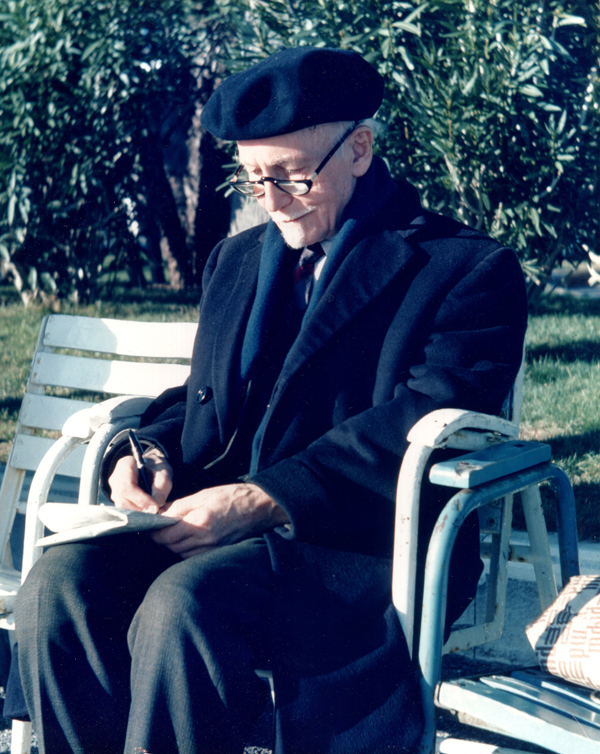

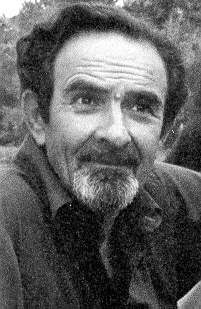


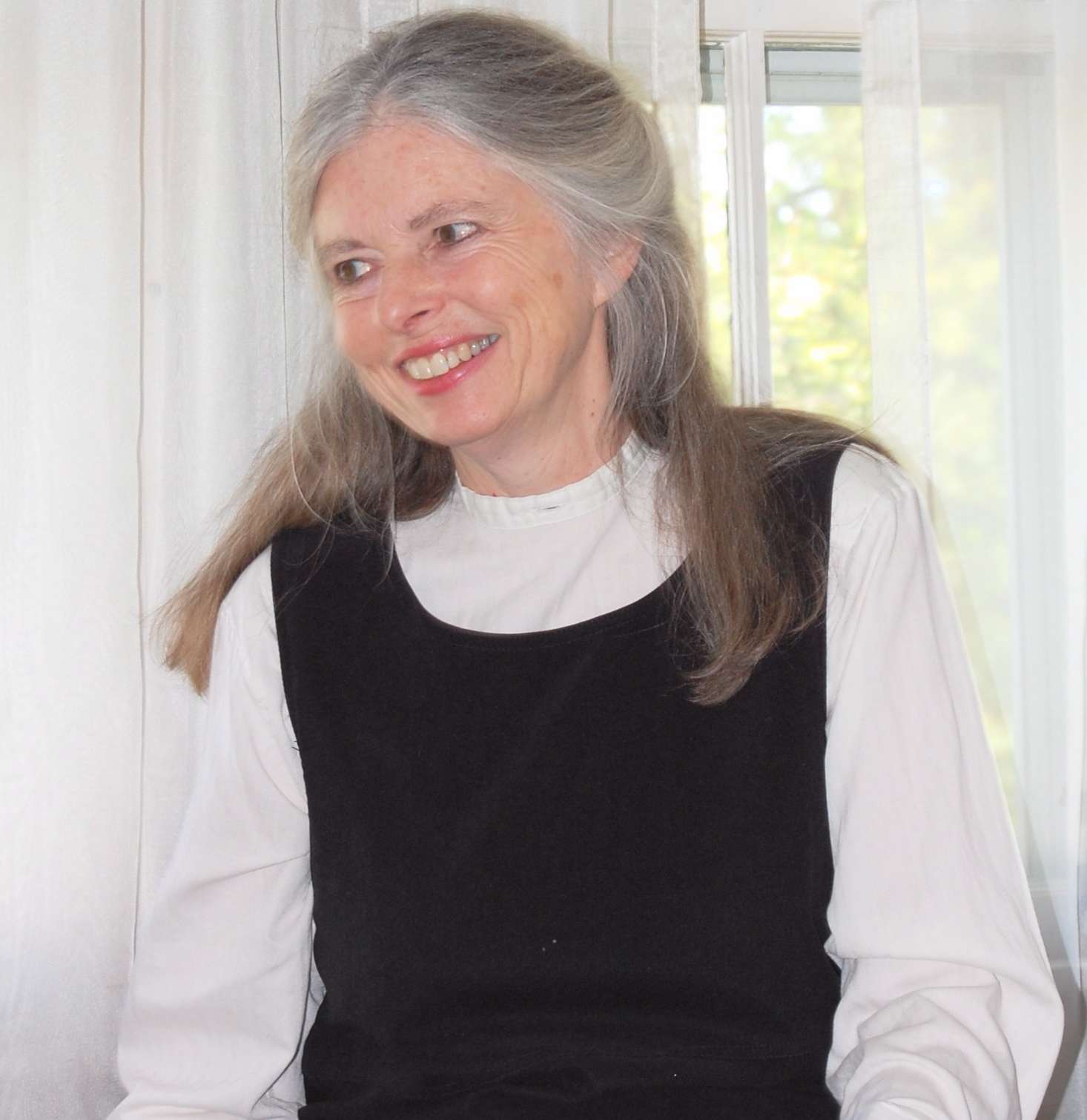
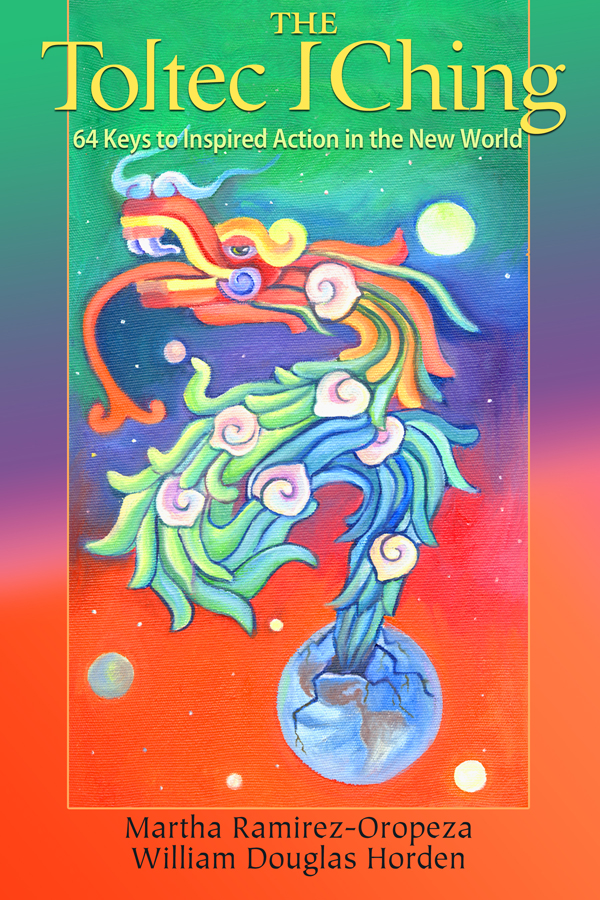
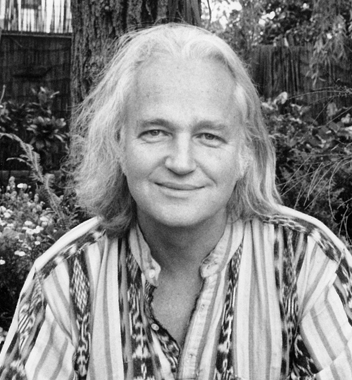
.jpg)
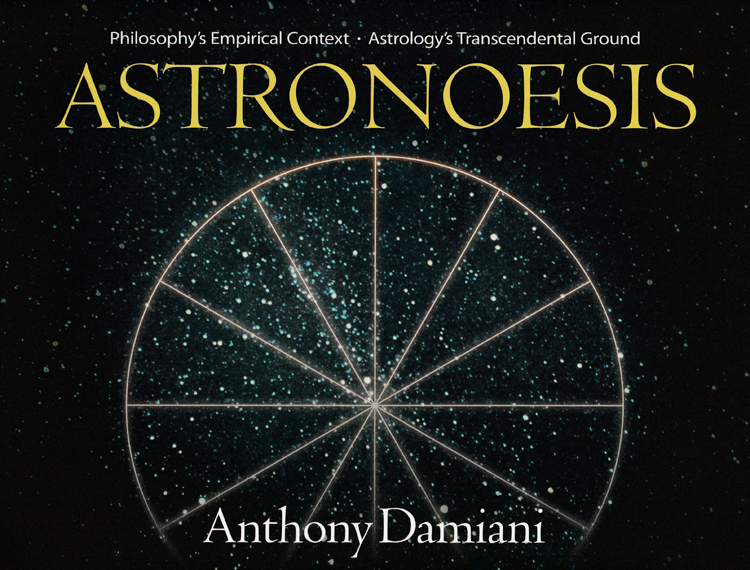
.jpg)
.jpg)
.jpg)
.jpg)
.jpg)
.jpg)
.jpg)
.jpg)
.jpg)
.jpg)
